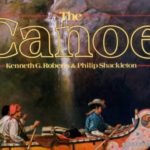Viewed From the Keel of a Canoe
Viewed from the Keel of a Canoe explores, in Charles Wright’s words, “language, landscape, and the idea of God.” These poems, rooted in a Southern aesthetic, weave together the violence of the rural world with the resonance of the King James Bible. Fathers and Grandfathers cut through the gothic haze to provide a vision backwards in time and forward into the future. Interpreting all and grounding all is the memory and imagination of the poet. In his poem, If it were not so, I would have told you, Boyleston writes: “Memory, Imagination, no one comes to the father, but through me.” The poems in Viewed from the Keel of a Canoe affirm this stand.













